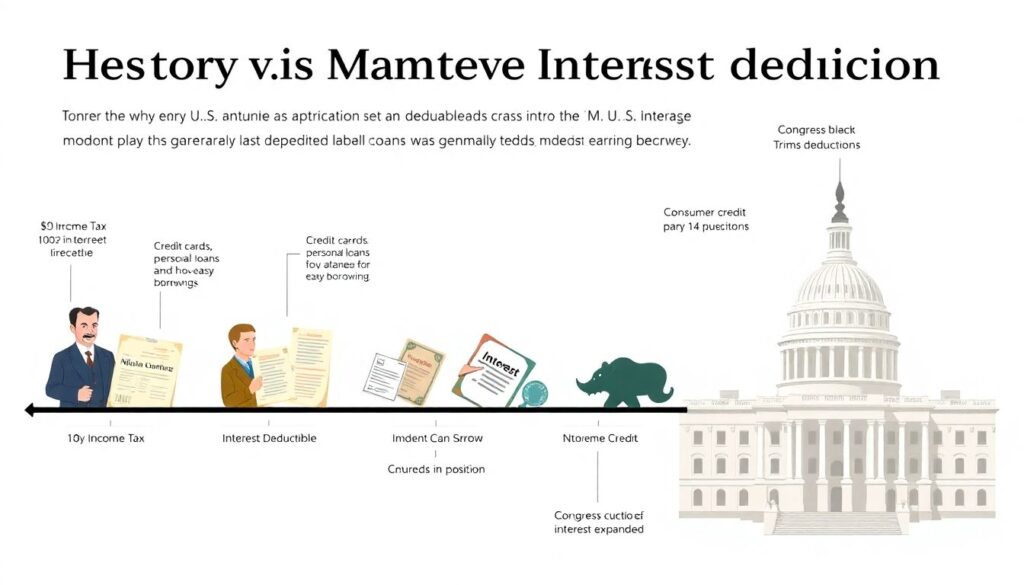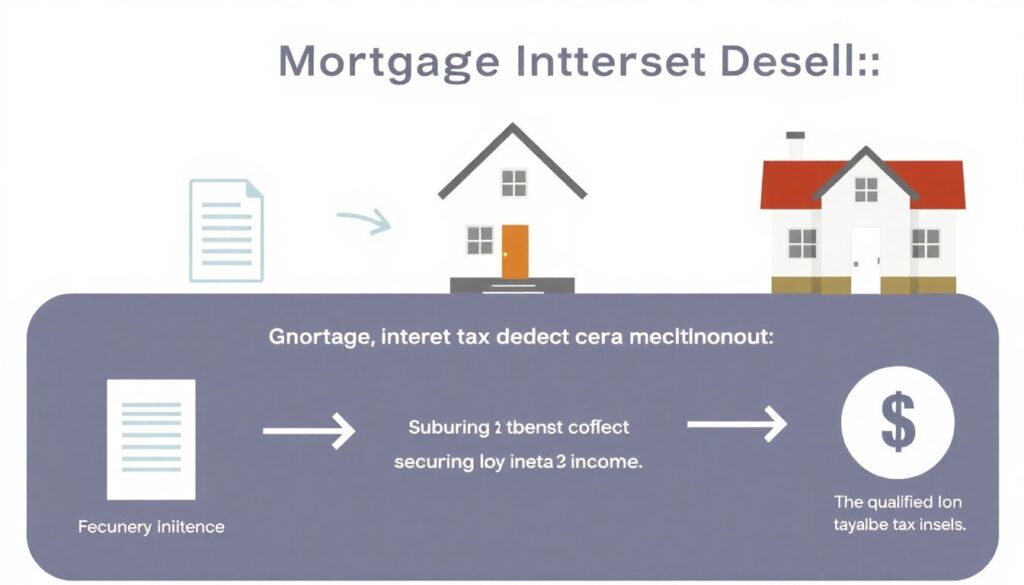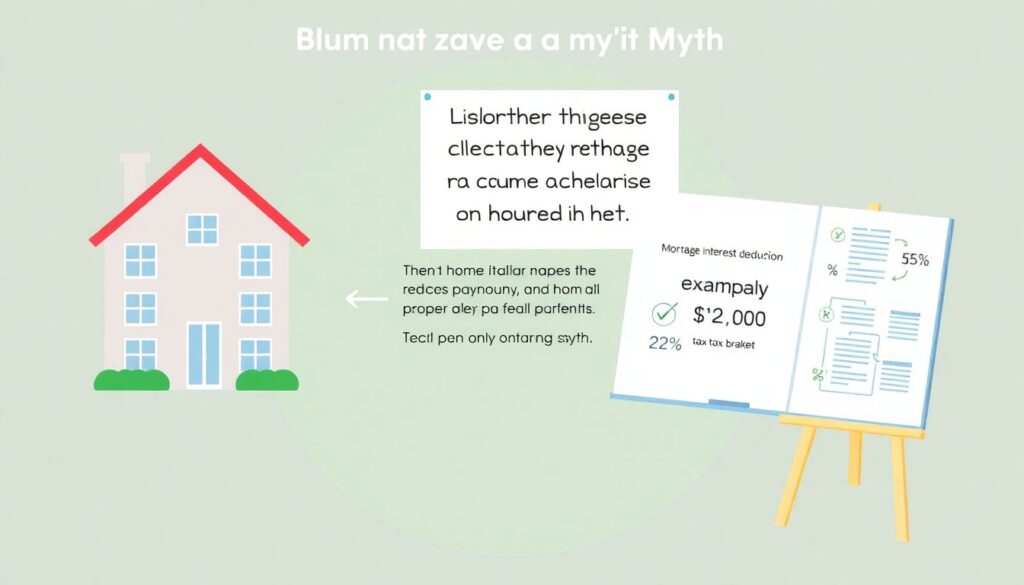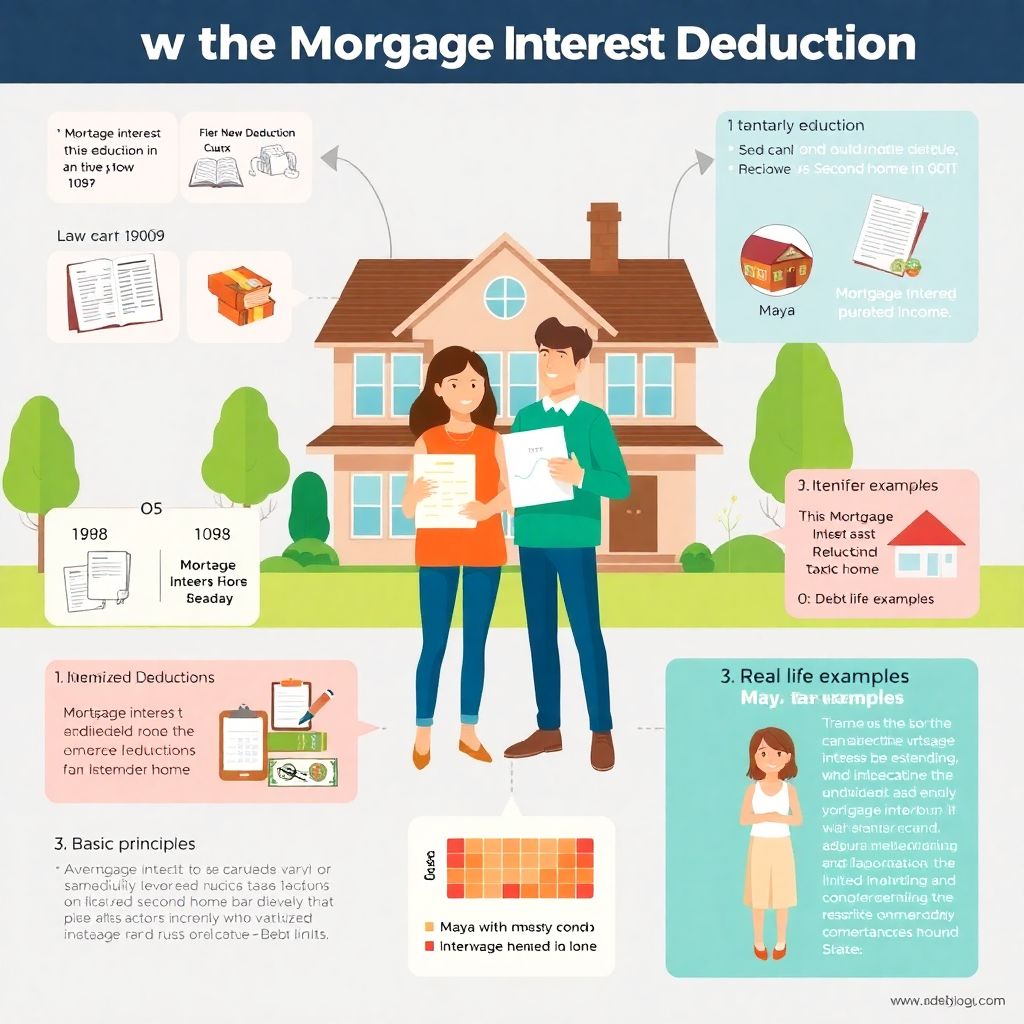Buying a home comes with enough paperwork to fill a small library, so it’s no surprise people feel lost when they first hear about the mortgage interest deduction. Still, this tax perk can significantly shrink your bill if you know how it works. Below, we will walk through where the deduction came from, what it actually does, how it plays out in real life, and which myths regularly confuse new homeowners who just want straight, practical answers.
Historical background

The mortgage interest deduction is older than most modern tax breaks. When the U.S. income tax took shape in the early 20th century, interest on personal loans was generally deductible, simply because lawmakers assumed borrowing was tied to earning income. As consumer credit expanded, Congress trimmed many interest write‑offs, but home loans stayed protected. Over time, lawmakers treated housing as a social priority, arguing that helping people buy homes supported stable communities and long‑term wealth building, so the deduction survived several major tax reforms.
In recent decades, though, the rules narrowed. Caps were introduced on how much mortgage debt qualifies, and deductions for home‑equity borrowing were limited. The 2017 tax reform raised the standard deduction sharply, so fewer people now itemize and claim mortgage interest at all. That is why many new homeowners feel surprised when they realize they do not automatically save on taxes. To see whether it still pays off in your situation, you need to compare itemizing to the standard deduction rather than assuming the benefit works the same way it did for your parents.
Basic principles

At its core, the deduction lets you subtract certain mortgage interest from your taxable income if you itemize. It does not reduce the tax rate, only the income that the rate applies to. You also need a qualified home loan on a primary or sometimes secondary residence, secured by the property. The amount of debt that qualifies is limited, and the specifics change as Congress updates the law, so keeping an eye on the mortgage interest deduction rules 2025 and later protects you from relying on outdated advice or casual guesses from friends.
A crucial point for beginners: you must choose between the standard deduction and itemizing. If the total of mortgage interest, property taxes, and other eligible expenses is lower than your standard deduction, the mortgage interest deduction effectively gives you no extra benefit. Many new buyers ask, “can I deduct mortgage interest on my taxes if my lender sends me Form 1098?” Technically yes, but it only helps if your itemized deductions beat the standard amount. Otherwise, claiming that interest simply does not move your tax number in a meaningful way.
Examples from real practice
Consider Maya, a first‑time buyer with a modest condo. Her annual mortgage interest is $4,200, and combined with state and local taxes, her itemized deductions reach $9,000. The standard deduction for her filing status is higher, so itemizing would actually raise her taxable income compared with taking the standard route. When she ran her numbers in a mortgage interest deduction calculator, she realized the deduction existed on paper but offered zero real savings. She chose the standard deduction and stopped assuming that owning a home guarantees an impressive tax refund.
Now look at Chris and Dana, who bought a more expensive house and carry larger debt. Their annual mortgage interest is $15,000, and their state taxes and charitable gifts add another $8,000. In their case, itemizing beats the standard deduction by a wide margin. Working with their accountant, they explored how to maximize mortgage interest tax deduction without distorting their finances, timing an extra payment in December so that one more month of interest landed in the same tax year. That small shift increased their itemized total and led to a meaningful drop in taxable income.
Tools and practical tips
You do not have to be a spreadsheet enthusiast to run the numbers correctly. Most homeowners benefit from plugging basic figures into a simple online mortgage interest deduction calculator, then comparing the output to the current standard deduction. This quick check helps you decide whether saving receipts and organizing itemized deductions is worth the effort. If the gap is small, you may still choose to itemize, but at least you will be doing it with clear expectations instead of vague optimism based on hearsay or outdated assumptions.
When tax season arrives, consider using reputable tax software for claiming mortgage interest deduction if you do not work with a professional. Modern programs import Form 1098, prompt you with questions about your home use, and warn you if you are bumping against debt limits or mixing personal and rental use of the property. This guidance is especially helpful for beginners who may own a vacation home, occasionally rent a room, or refinance during the year, situations that complicate the calculation more than most people expect at the outset.
Frequent misconceptions

One widespread myth is that the deduction makes buying a home automatically cheaper than renting. In reality, it only reduces taxable income; it does not refund all the interest you pay. If you spend $10,000 on mortgage interest and you are in a 22% tax bracket, the deduction might save roughly $2,200 in taxes, not the full ten thousand. New homeowners sometimes overpay for a property thinking the tax break will somehow reimburse them, which can lead to cash‑flow stress once they face real monthly payments and maintenance costs.
Another misconception is that bigger mortgages always create bigger benefits. While more interest can increase the deductible amount, higher debt also heightens financial risk and may exceed allowable limits. Plus, if tax laws shift, what seemed like a clever strategy to chase a deduction can age badly. Instead of stretching your budget just for tax reasons, treat the deduction as a bonus rather than the main justification for the purchase. A sensible loan size, a stable payment, and a home that fits your life will matter far more than squeezing out a slightly larger write‑off from the tax code.

